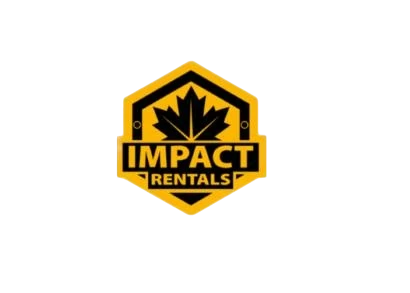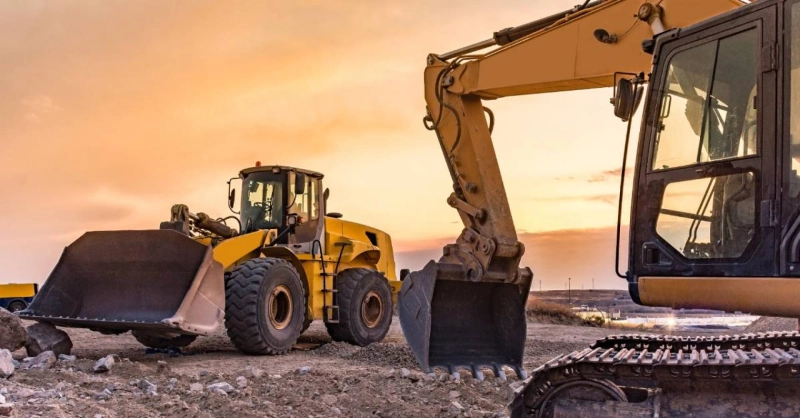Renting heavy construction equipment is a strategic decision that can significantly impact the budget of a construction project. Whether you're managing a residential build, an infrastructure expansion, or an industrial site development, access to the right equipment at the right time can greatly influence efficiency, timelines, and cost control. But one of the most common and critical questions contractors and project managers ask is: How much does it cost to rent heavy construction equipment?
The answer isn't simple. The cost of heavy equipment rental can vary significantly based on a wide range of variables. From machine type and size to location, rental duration, and even seasonal demand, several components influence the final price. In this article, we'll explore the key cost factors, break down what's typically included (and not included), and share practical tips for managing and minimizing your rental expenses.
Why Rental Costs Vary So Much
There is no universal rental rate for construction equipment because each job site is unique. Rental companies calculate costs based on a combination of factors, including:
1. Type and Complexity of the Equipment
The cost of renting a machine increases with size and complexity. A standard skid steer or mini excavator will cost far less than a hydraulic crane, dozer, or motor grader. Additionally, specialized equipment—such as a concrete boom pump or pile driver—may incur premium fees due to its complexity and high demand.
2. Duration of Rental
Rental companies typically offer daily, weekly, and monthly pricing tiers, with longer commitments offering better daily value. A machine rented for one day may cost almost half the price of a full week, while monthly rentals often bring down the per-day cost even further.
However, short-term rentals offer flexibility, especially for emergency jobs or unexpected scope changes.
3. Location and Accessibility
Costs frequently change based on where you live and how simple it is to deliver equipment to your site. Urban areas with dense construction activity may offer more competitive pricing due to increased supplier availability. At the same time, rural or remote job sites may experience inflated delivery charges, fuel surcharges, or scarcity premiums.
4. Seasonal Demand
Just like in real estate or travel, construction equipment rental prices fluctuate throughout the year. Peak building seasons are spring and summer, when high demand may drive up rental prices. During the winter months, opportunities may arise to negotiate discounted rates or bundle deals.
5. Included Services
When you rent a machine, the base price might only include the equipment itself. Additional costs can come from:
- Delivery and pickup charges
- Maintenance and service agreements
- Damage waivers or insurance
- Operator services (if needed)
- Accessories and attachments
Understanding what is included in your rental and what is billed separately is crucial to accurately estimating your total cost.
What is usually included in a rental agreement?
While offerings vary between providers, here's what you can generally expect:
Equipment Use for a Set Period
Your contract will outline a specific rental term, usually billed by the day, week, or month. Be aware of usage hour limits—most rentals include a maximum number of operating hours per day.
Basic Maintenance
Most providers include basic servicing, oil checks, and minor repairs as part of the rental, provided the equipment is used under normal conditions. You may be charged for damage caused by misuse, overloading, or negligence.
Emergency Support
Some companies offer 24/7 emergency support or machine replacement in the event of breakdowns. This support may or may not be included in the rental rate, so it's essential to clarify upfront.
Delivery and Pickup
Many rental companies offer transportation services at an additional fee. Some waive delivery fees for long-term rentals or returning customers.
Additional Costs to Watch Out For
Understanding your total rental cost means looking beyond the advertised daily rate. Here are some hidden or overlooked charges that can inflate your final invoice:
Fuel Charges
Some machines are delivered full but must be returned refueled. If not, refueling fees can be steep. Always clarify fuel policies in advance.
Cleaning Fees
Returning equipment in a dirty or muddy condition could result in cleaning charges. Cleaning the equipment on-site before return can help avoid this.
Late Fees
Returning equipment even a few hours late can incur full-day charges or overtime rates. Ensure that you schedule pickups and drop-offs precisely.
Damage or Wear-and-Tear Costs
Normal wear is typically covered; however, cosmetic or operational damage resulting from operator error may incur additional repair fees or result in a partial or full withholding of the deposit.
Insurance or Damage Waivers
Rental providers often require customers to carry liability insurance or offer an optional damage waiver at a cost. Read the fine print carefully—it might not cover all scenarios.
How to Estimate and Manage Your Equipment Rental Budget
To get a realistic picture of what your equipment rental will cost, follow these steps:
1. Define Project Scope Clearly
Before calling rental companies, determine what you need: the type of equipment, estimated operating hours per day, job duration, and any special conditions (such as tight spaces or variable terrain).
2. Request Itemized Quotes
Always request a line-by-line breakdown of all costs, including the base rental rate, attachments, delivery, insurance, and taxes. This makes it easier for you to compare options and identify areas that require precise negotiation.
3. Consider Bundling
Many suppliers offer bundled packages if you're renting multiple machines or adding attachments. Bundles often come at a reduced overall cost.
4. Rent for the Right Time Frame
If your project may extend beyond a few days, consider inquiring about weekly or monthly rates instead of paying by the day. Even if your usage fluctuates, a longer-term rate may save money overall.
5. Monitor Equipment Utilization
Idle machines burn rental dollars. Use scheduling software or simple logs to track machine usage on a daily basis. If a machine is idle for more than a few days, consider returning or rotating it.
When Renting Makes the Most Financial Sense
Renting is almost always the better choice when:
- The equipment is required for a one-time or short-term project.
- You require multiple types of specialized equipment for different tasks
- You're operating on a tight budget and can't commit to a purchase
- You don't have the resources to store or maintain the equipment
- You want to test the equipment before deciding on a purchase
Final Thoughts
How much does renting heavy construction equipment cost, then? The answer is—it depends. Your final cost will be influenced by what you need, where you need it, how long you need it, and who you rent it from.
The good news is that with the right planning, transparent communication, and an understanding of potential extra fees, you can control costs and extract real value from your rentals. Whether you're a seasoned general contractor or managing your first commercial build, strategic equipment rental can give your business the flexibility and efficiency it needs to stay competitive and profitable.
Remember, the real cost isn't just in dollars—it's also in downtime, inefficiency, and opportunity lost. Choose your rental partner wisely, and your equipment will work as hard as you do.



